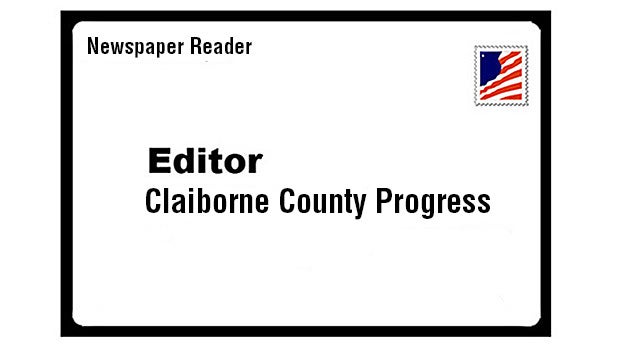Don’t discourage potential educators
Published 2:04 pm Thursday, March 8, 2018
To the Editor:
In regard to the Claiborne Progress newspaper wanting strong opinions, it is my strong opinion that the teaching profession can be the most inspiring, fulfilling and life-affirming career a person can have. People who are considering a career in teaching should NOT be discouraged.
However, in my opinion, the overall national system of public education faces three major problems, and things will not further show major progress until we address all of them in the correct way. Due to the high-pressure accountability brought about by today’s state and federal testing, teachers generally teach students what to learn very well but not necessarily always how to learn.
Anyway, the first problem is the idea that teachers can effectively be pressured by teacher accountability that relies heavily on state-mandated, standardized, multiple-choice tests. Most research, for what it is worth that I have read on standardized testing, agree that tests only measure the lowest level of learning and do not correlate with critical comprehension and/or higher-order thinking skills. What standardized test do accomplish, however, is providing a way for the general public, who are somewhat unknowledgeable about the profession that consists of the actual art of teaching/learning, to use test scores to convince themselves that people in high political offices making these decisions are tough on raising standards. But arguably, the tests do nothing of the sort. Perhaps overall, test scores can increase even though students aren’t learning anything.
The high-stakes test create a classroom situation in which much of student learning across the states are spent in teaching students what’s on the test. This is possibly taking a chance on creating students who may resent school by disregarding any creativity and autonomy teachers once had. This lack of academic freedom and pressure are conceivably driving teachers out of the profession.
The second major problem facing education has to do with the pressure on today’s teachers as well. At times, there are too many outside forces getting in the way of teaching in many cases. The vast amount of teaching “programs” much like the emphasis on the specific overall use of technology in general, don’t educate children — teachers do. Such programs are merely tools; but too easily teachers feel overwhelmed. They often feel as if they are plowing a mile wide but only an inch deep. In essence, they’re still teaching everything good but not anything great! There is a clear need for teachers who love what they felt destined to do and genuinely care about their students. While continually building on student-teacher relationships, successful teachers can identify what is desired and needed for proper planning of productive lessons for the specific needs of all students or the particular class at hand. Teachers need the time or freedom to inspire, motivate and enable students to be what they might desire to be. More positive results come from students that learn because they want to, and not necessarily because they have to. So, great teaching consists of building relationships that takes time. Then, I believe that passionate teachers who truly confess a love for the teaching process will have a more positive effect on instructional practices in the classroom for the learners.
The third big problem facing teachers besides the lack of pay and respect they deserve, could be the “dumbing down” of America. Too many decision-makers only look upon intellectual and/or at least academic pursuits — specifically in math or science. This is not an accident; it’s perhaps a concerted effort by such decision-makers who divide people into false categories such as “blue collar” or “city elites.” I feel that most all students are gifted in some area or another. Sadly, the system lacks time or energy, only identifying the “academic” gifted students. Generally, students with gifts in other areas such as music, art, care-taking, speaking/communication, etc. are many times overlooked. Gifted students usually excel in one specific area and that area may not be on state tests. Also, whereas an high achieving child knows the answer; the gifted learner asks the questions. High achievers are students who perform at peak academic levels. They take the hardest classes and ace them all. They are tenacious. However, the truly gifted tend to follow their desires and interest when choosing what to learn. Just like others, truly gifted students may not be identified by today’s test and need motivation as well, which require time and a relationship with a teacher(s).
On the other hand, while all children may have gifts, not all children are “gifted” as defined by researchers and educators around the globe. For decades, I’m sure myths related to gifted students in areas other than academics have had detrimental effects on providing quality instruction for our nation’s high-ability learners. I’m sure these myths have affected every facet of the field, and in turn have distorted the perception of not only what all gifted students need in the classroom but also what they can offer the nation now and into the future.
In closing, let me also say that regardless, followers are needed but leaders can be detrimental and public education is the best vehicle for democracy we have, which is why, ironically, some people might be against it. No one needs to take a standardized test to figure that out.
C. Travis Sutton, BA, MA, EdS, EdD
Cumberland Gap, Tennessee




